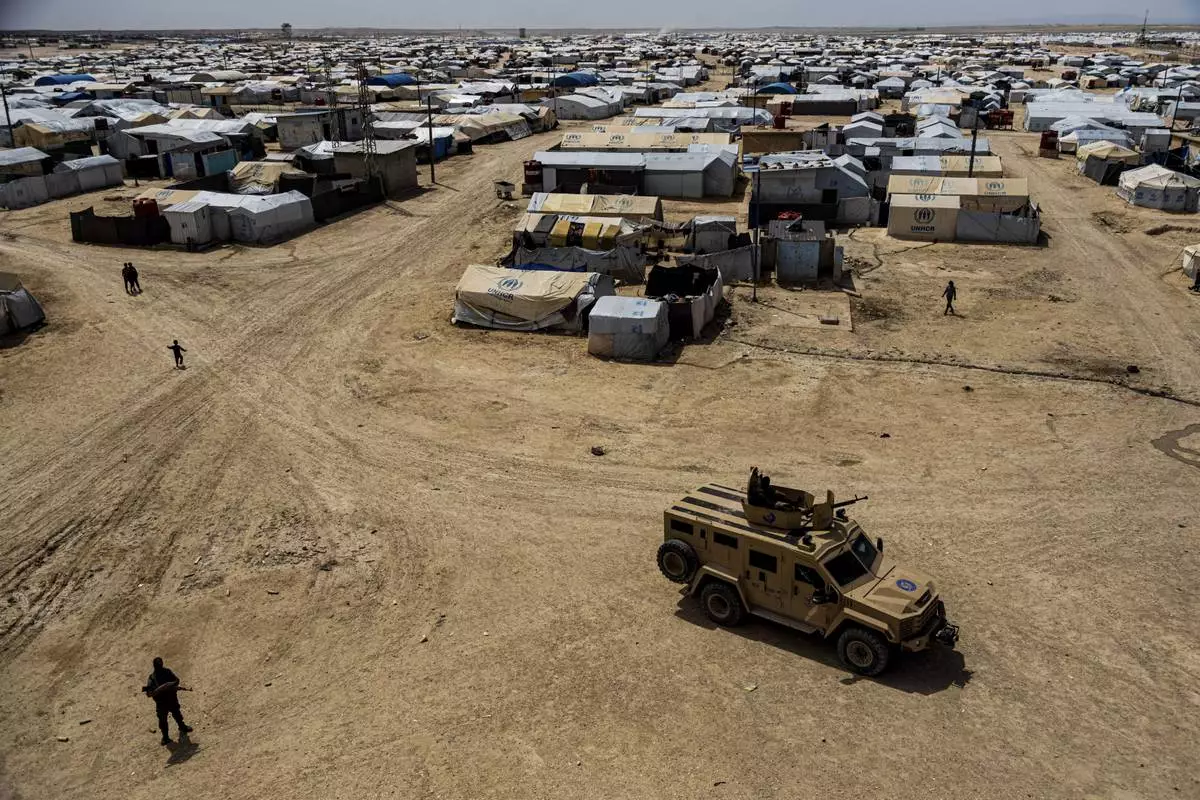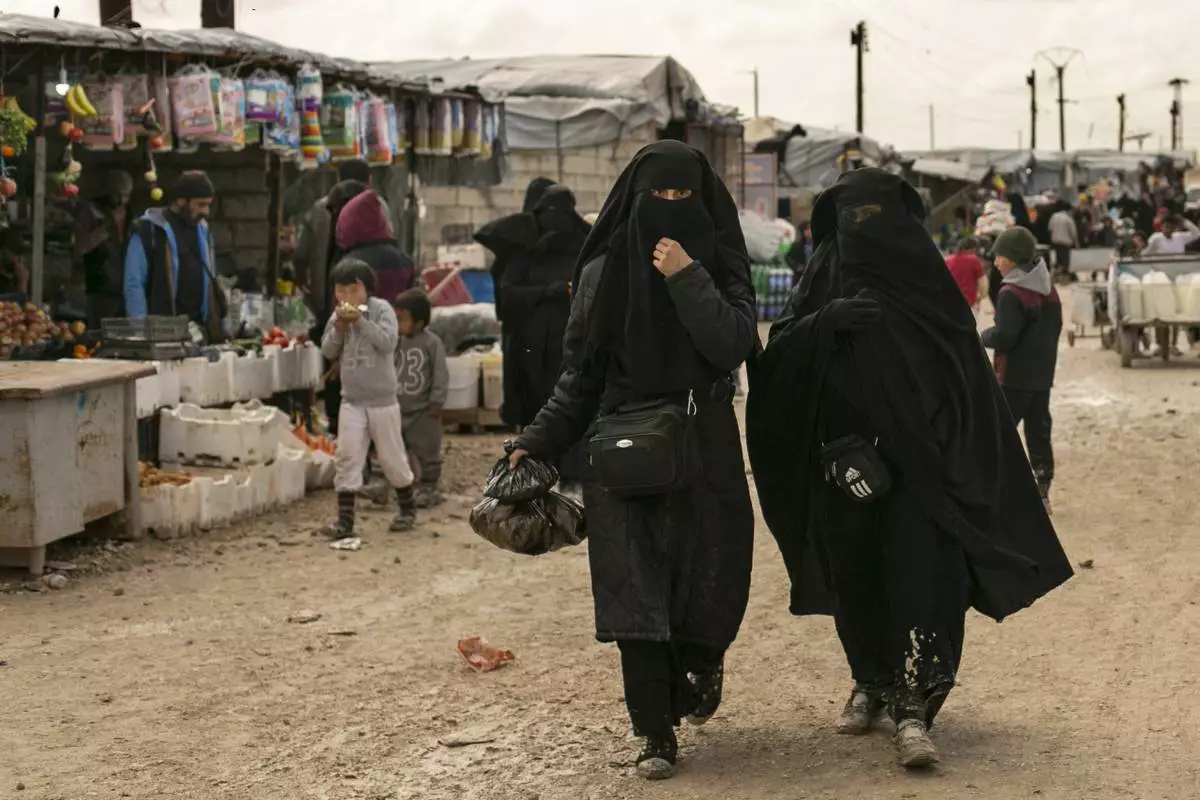Yalitza Aparicio, the Oscar-nominated, first-time actress in "Roma," is finding strong support among Mexican-American women who identify with her indigenous roots despite backlash she is receiving in Mexico.
Some Mexican-American women say they are glad Aparicio's high-profile role is challenging typical images of light-skinned Latinas in Spanish-language films and TV shows, and they are expressing pride that she's the first indigenous woman to be nominated for best actress at the Oscars.
U.S. Latina Aparicio fans are holding Oscar watch parties, commenting to each other online with excitement and sharing on social media every move Aparicio makes.

FILE - In this Feb. 4, 2019 file photo, Yalitza Aparicio, nominated for an Oscar for best actress for her role in "Roma," poses for a portrait at the 91st Academy Awards Nominees Luncheon in Beverly Hills, Calif. The Oscars will be held on Sunday. (Photo by Chris PizzelloInvisionAP, File)
"She's brown girl magic," said Jennie Luna, a Chicana/o Studies professor at California State University Channel Islands in Camarillo, California. "My students can't stop talking about her."
The praise north of the U.S.-Mexico border among fans of Mexican descent comes as Aparicio, who is from the Mexican state of Oaxaca, faces racist attacks online in her homeland and scorn from some Mexican actors. More recently, Mexican actor Sergio Goyri was caught on video criticizing Aparicio's nomination and using a racial slur to describe her. He later apologized.
After she appeared on the cover of Vogue México last year, Aparicio was hit with a tirade of online racist comments that criticize her physical appearance.

FILE - In this Feb. 4, 2019 file photo, Yalitza Aparicio, nominated for an Oscar for best actress for her role in "Roma," poses for a portrait at the 91st Academy Awards Nominees Luncheon in Beverly Hills, Calif. The Oscars will be held on Sunday. (Photo by Chris PizzelloInvisionAP, File)
"I am proud to be an Oaxacan indigenous woman and it saddens me that there are people who do not know the correct meaning of words," Aparicio, who is of Mixtec descent, said in a statement earlier this month.
In "Roma," Aparicio plays Cleo, a domestic worker for a Mexico City middle-class family in the turbulent early 1970s. She speaks in an indigenous dialect and in Spanish and works to navigate the different worlds for her own survival.
Aparicio, a 25-year-old primary school teacher, is nominated alongside Glenn Close, Lady Gaga, Olivia Colman and Melissa McCarthy at Sunday's Oscars.

FILE - In this Feb. 4, 2019 file photo, Yalitza Aparicio, nominated for an Oscar for best actress for her role in "Roma," poses for a portrait at the 91st Academy Awards Nominees Luncheon in Beverly Hills, Calif. The Oscars will be held on Sunday. (Photo by Chris PizzelloInvisionAP, File)
Astrid Silva, an immigrant rights activist in Las Vegas whose parents are from Mexico, said many Mexican-American women and Mexican immigrants in the U.S. see themselves in Aparicio for many reasons.
"She's a dark-skinned woman (who) comes from a poor region in Mexico like many of our families," Silva said. "She's not only challenging old notions of beauty that always involved blond hair and light skin. She's threatening them."
Aparicio's popularity is especially strong in California where many Mexican-Americans can trace their roots to migrants from the southern Mexican states of Oaxaca, Michoacán and Guerrero. Those states have vibrant, diverse indigenous populations that historically faced discrimination in Mexico.

FILE - In this Feb. 4, 2019 file photo, Yalitza Aparicio, nominated for an Oscar for best actress for her role in "Roma," poses for a portrait at the 91st Academy Awards Nominees Luncheon in Beverly Hills, Calif. The Oscars will be held on Sunday. (Photo by Chris PizzelloInvisionAP, File)
"We've been working to rediscover our indigenous roots and Aparicio's presence is showing that we matter," said Lilia Soto, an American Studies professor at the University of Wyoming, who grew up in Napa, California. "The racism she's facing in Mexico also is an attack against us."
Soto said Aparicio also is popular among Mexican immigrants in New York City who largely come from the Mexican state of Pueblo — another region with an indigenous population.
When Aparicio visited New York City last year, she was treated to a hero's welcome among the Mexican immigrants she encountered.

This image released by Netflix shows Yalitza Aparicio, center, in a scene from the film "Roma," by filmmaker Alfonso Cuaron. The film is nominated for an Oscar for both best foreign language film and best picture. The 91st Academy Awards will be held on Sunday. (Carlos SomonteNetflix via AP)
Silva said she hadn't planned on watching the Academy Awards until she heard about Aparicio's nomination and "Roma's" best picture nod.
"It's hard to describe. It's not just pride we're feeling," Silva said. "Yalitza is just...us."
Associated Press Writer Russell Contreras is a member of The Associated Press' race and ethnicity team. Follow Contreras on Twitter at http://twitter.com/russcontreras
For full coverage of the Oscars, visit: https://apnews.com/AcademyAwards











